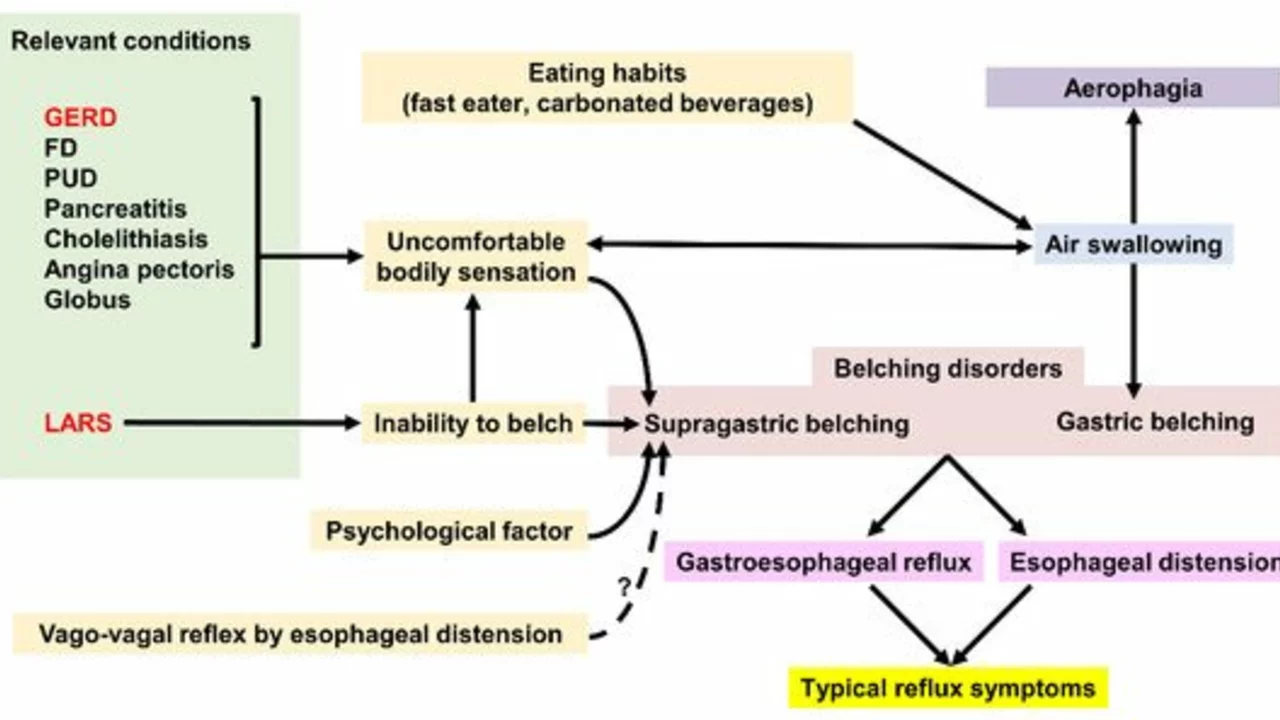Understanding Angina
Before we delve into the role of lifestyle changes in managing angina, it's important to have a basic understanding of what angina is. Angina is a type of chest pain caused by reduced blood flow to the heart muscles. It's a symptom of coronary artery disease, which is the most common type of heart disease in adults. Angina can feel like squeezing or pressure in your chest, and may also be felt in the shoulders, arms, neck, jaw, or back. It's typically triggered by physical exertion or stress, but can also occur at rest in severe cases.
Importance of Lifestyle Changes
Regardless of the type of angina you have, lifestyle changes are critical in managing symptoms and preventing future heart disease. In fact, lifestyle modifications can often be as effective as medication in managing angina. These changes can help improve the health of your heart and blood vessels, reduce your symptoms, and lower your risk of heart attacks and other cardiac events.
Eating a Healthy Diet
Eating a heart-healthy diet is one of the most important lifestyle changes you can make. This means eating plenty of fruits, vegetables, lean proteins, and healthy fats while limiting saturated fats, trans fats, cholesterol, salt, and added sugars. It's also helpful to eat smaller meals more frequently to avoid overeating and maintain stable blood sugar levels.
Getting Regular Exercise
Regular physical activity is another key lifestyle change. Exercise helps strengthen the heart and improve circulation, which can reduce angina symptoms. It's important to start slowly and gradually increase your activity level, always with your doctor's approval. Walking, swimming, and cycling are all good options for people with angina.
Quitting Smoking
Smoking is a major risk factor for heart disease and can make angina symptoms worse. If you smoke, quitting is one of the best things you can do for your heart. There are many resources available to help you quit, including medications, counseling, and support groups.
Limiting Alcohol Consumption
While moderate alcohol consumption can have certain heart benefits, excessive drinking can raise your blood pressure, contribute to obesity, and lead to other heart problems. If you drink alcohol, it's important to do so in moderation. This usually means up to one drink a day for women and up to two drinks a day for men.
Managing Stress
Chronic stress can raise your heart rate and blood pressure, potentially triggering angina symptoms. Managing stress is therefore an important part of managing angina. This can include relaxation techniques such as deep breathing, meditation, yoga, and tai chi. It's also important to get enough sleep and to have healthy outlets for your stress, such as hobbies or social activities.
Taking Prescribed Medications
While lifestyle changes are vital, it's also important to take any medications prescribed by your doctor. These can help manage your symptoms and prevent further heart damage. Be sure to take your medications as directed and to communicate with your doctor about any side effects or concerns.
Regular Check-ups
Regular check-ups with your doctor are crucial in managing angina. Your doctor can monitor your progress, adjust your treatment plan as needed, and provide support and advice for making lifestyle changes. It's also an opportunity for you to ask any questions or voice any concerns you may have.
Conclusion: The Power of Lifestyle Changes
In conclusion, lifestyle changes play a critical role in managing angina symptoms and preventing heart disease. While medication and medical procedures can also be important, it's often the changes we make in our daily lives that have the biggest impact on our health. By eating a healthy diet, exercising regularly, quitting smoking, limiting alcohol, managing stress, taking prescribed medications, and getting regular check-ups, you can significantly improve your heart health and quality of life.



12 Comments
Katie Ring
July 18, 2023 AT 03:22Let’s be real-lifestyle changes aren’t some magical cure. They’re the bare minimum. If you’re waiting for a pill to fix your life, you’re already behind. The heart doesn’t care about your excuses. It just wants you to stop eating garbage and move your body. Simple. Brutal. True.
Adarsha Foundation
July 18, 2023 AT 07:53I appreciate this post. In India, we’ve always had traditions of walking daily, eating seasonal foods, and sitting quietly after meals. These aren’t ‘lifestyle changes’-they’re just how life was lived before corporations sold us convenience. Maybe we didn’t need to reinvent the wheel.
Alex Sherman
July 20, 2023 AT 00:30Of course, the real issue here is that people don’t have the discipline to do what’s right. They want a quick fix, a pill, a gadget. Meanwhile, the real solution-eating vegetables, walking 30 minutes, and quitting smoking-is so painfully obvious that it’s almost insulting to spell it out. But here we are.
Oliver Myers
July 20, 2023 AT 19:48Thank you so much for this thoughtful, well-researched piece! It’s so important to remember that small, consistent changes-like swapping soda for water, taking the stairs, or even just breathing deeply when stressed-can have a massive cumulative effect! Your tone is so encouraging, and I truly believe this will help so many people! Keep going!
John Concepcion
July 22, 2023 AT 08:30Yeah, sure, eat kale and meditate. Meanwhile, your insurance won’t cover your meds because ‘you didn’t follow lifestyle advice.’ So now you’re guilty of being sick? Cool. I’ve got angina and a 60-hour workweek. Tell me how to ‘manage stress’ when my boss texts me at 2 a.m.
Caitlin Stewart
July 22, 2023 AT 14:28My grandmother had angina for 20 years. She never took a pill. Walked every morning, ate lentils and greens, never drank alcohol, and never let stress stick. She lived to 94. Not because she was perfect-but because she showed up, day after day. That’s the real secret.
Emmalee Amthor
July 23, 2023 AT 03:14Everyone says ‘exercise’ like it’s magic. But what if you can’t walk? What if your knees are shot? Or your job’s on your feet 12 hours a day? We need to stop pretending lifestyle changes are easy. They’re not. They’re a privilege. And the system doesn’t care if you’re too tired to cook a vegetable.
Leslie Schnack
July 23, 2023 AT 10:05Has anyone looked at how air pollution affects angina? I live in a city where smog is worse than my cholesterol. Are we blaming the patient while ignoring that the environment is poisoning us? Just wondering.
Saumyata Tiwari
July 23, 2023 AT 11:07Western medicine is so arrogant. In India, we’ve had Ayurveda for 5,000 years-herbs, pranayama, oil massages. Now you people are just ‘discovering’ lifestyle? Pathetic. You need to stop pretending your way is superior. We’ve been healing without pills for millennia.
Anthony Tong
July 24, 2023 AT 08:52This is all a distraction. The real cause of angina? The government’s been poisoning the water supply with fluoride since the 1950s. And the pharmaceutical companies? They’re making billions off your fear. Lifestyle changes? A smokescreen. Wake up.
Roy Scorer
July 25, 2023 AT 00:59You all think you’re so enlightened for ‘eating well.’ But you’re just performing wellness. You post your quinoa bowls on Instagram while your soul is rotting from loneliness. Angina isn’t a diet problem-it’s a spiritual one. You’ve forgotten how to be still. You’ve forgotten how to love. And now your heart is paying the price.
Matthew Kwiecinski
July 26, 2023 AT 16:06Smoking is the #1 cause. Period. Quitting is the single most effective intervention. Everything else is noise. If you don’t stop smoking, none of this matters. Not diet. Not yoga. Not meditation. Smoke, and you’re just delaying the inevitable.